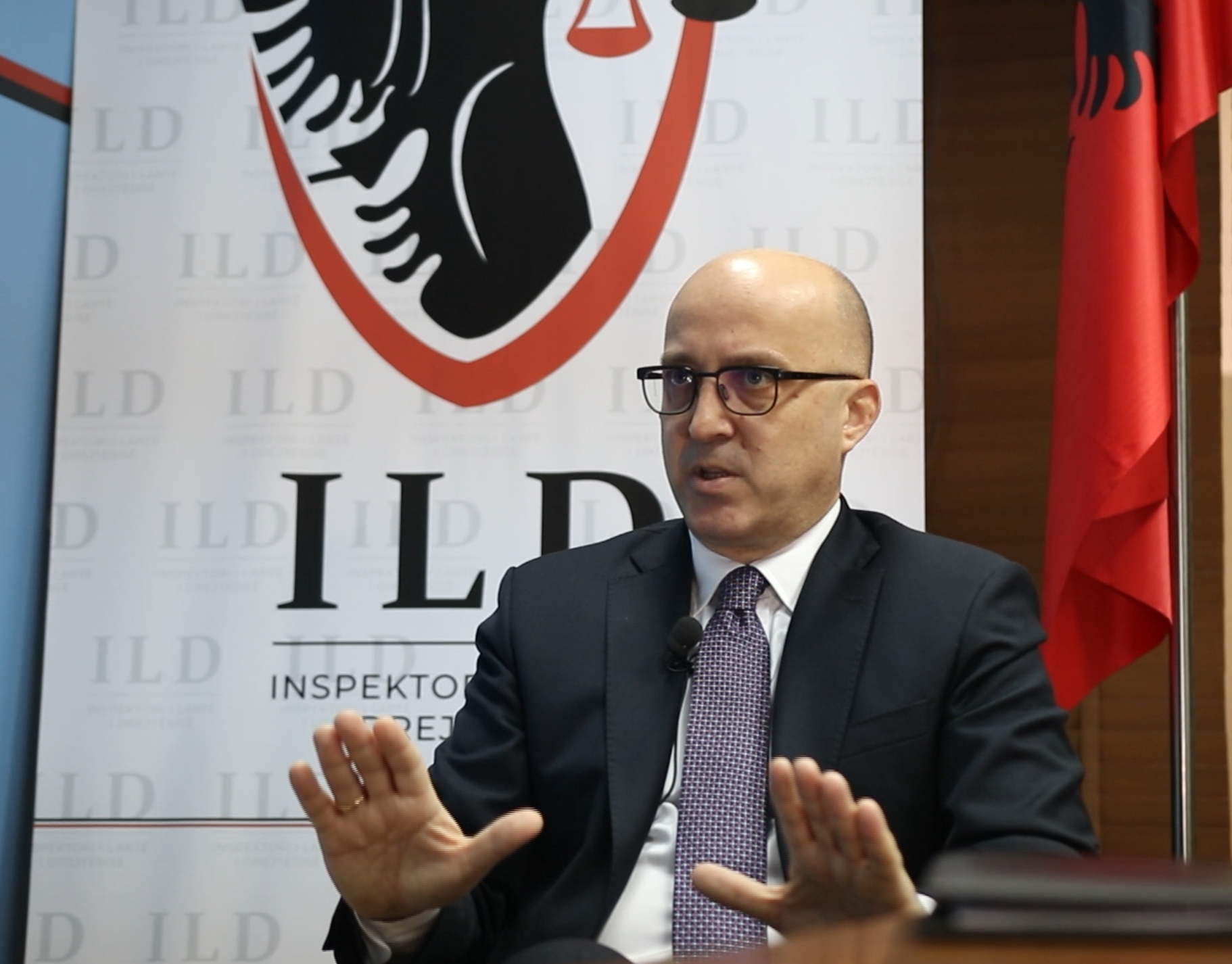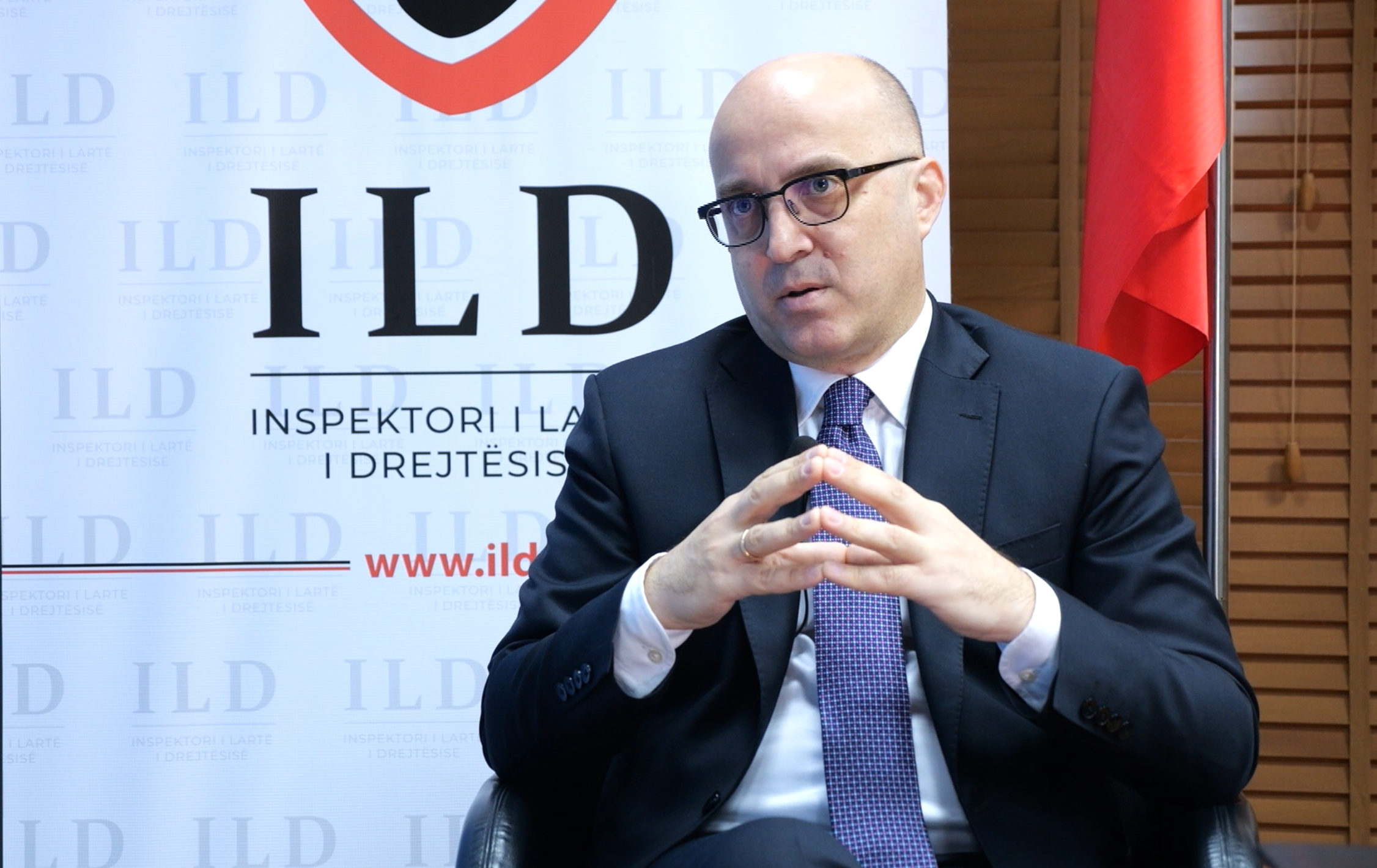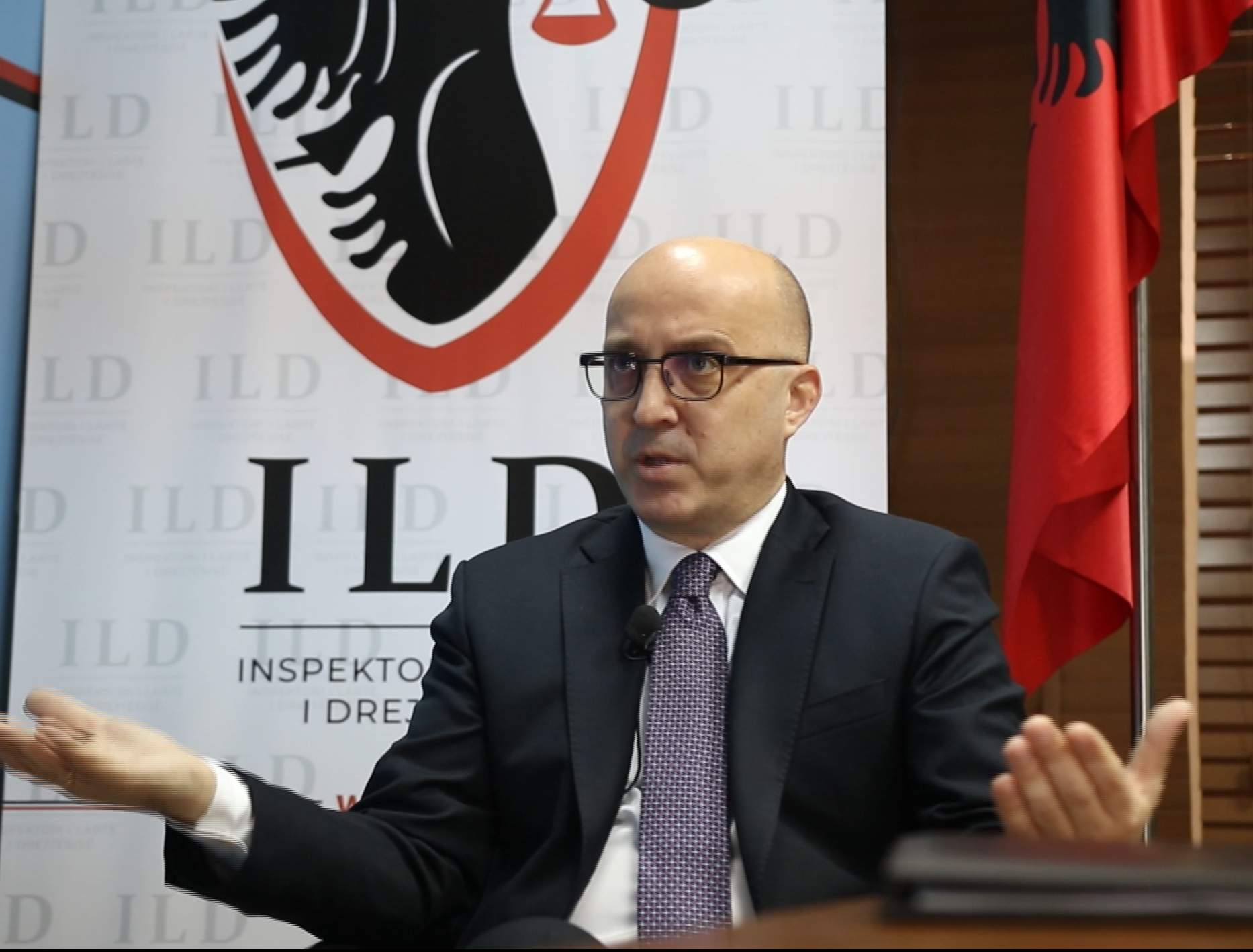High Inspector of Justice Artur Metani, during an interview with journalist Eni Ferhati of Euronews Albania, reviewed the work done in 2022 and analyzed the challenges and ambitions of the HIJ institution for 2023. Mr. Metani said that in the beginning the shortage of infrastructural and human resources was the main talking point, whereas now, almost 3 years later, HIJ takes pride in its results and talks about setting standards in the system, for both judges and prosecutors’ work.
Asked about the progress of complaints handling, especially the inherited ones, Mr. Metani said that the HIJ goal is that the review of the inherited stock of 2104 complaints will finish in the first months of 2023, due to the fast-paced work environment, trying simultaneously not to neglect the complaints received directly at HIJ. Despite the increase in the number of inspectors, from 8 to 12, the inspection resources are not sufficient to deal with the flow of complaints in a timely manner and this rightly brings dissatisfaction from the complainants, but it is a situation that HIJ has always presented, and we are trying to do our best, so that no complaint against a judge or prosecutor remains unaddressed, said the High Inspector of Justice asking for the complaining citizens understanding.
“The problem of inspectors still exists in the High Inspector of Justice Office, moreover, this Office, I think, needs judge inspectors who know the justice system from the inside and can produce more accurate and professional analyses, in order to boost the performance of the judicial system. The total number of complaints today, apart from those inherited, is over 5,000. I definitely understand that the High Inspector of Justice has exceeded the deadlines provided by law for handling complaints, especially for the inherited ones because we are talking about complaints received since 2017. In order not to leave complaints review to chance, a methodology has been adopted which deals with the prioritization of their handling. This means that we have given priority to the old complaints, and obviously the complaints that are received now should wait until we have reviewed the complaints that were previously in this institution because this is the logical order of work. In addition, it is also a legal order because the period for which the High Inspector of Justice must handle the complaint, is 5 years and I would like that no complaint statue of limitation to run out in the Office of the High Inspector of Justice. I would like every citizen, everyone to receive the answers they deserve according to the law.”
Asked if the increasing number of proceedings against magistrates initiated by the HIJ has brought improvements to the system, Mr. Metani said that in its work the institution always aims at finding a balance between the independence of magistrates and the legitimate public interest in how Justice is administered. The independence of magistrates is a guarantee for the citizens themselves in the first place.
“The independence of judges and prosecutors is not, I would like to emphasize this, it is not a shield that we use to protect the dirty work of judges and prosecutors or even worse to protect our incompetence if there is any. The independence of judges and prosecutors is a guarantee which is more for citizens. The more independent a judge and prosecutor is today, the more protected the citizen is tomorrow, so that the judges and prosecutors do not fear either the political power or the High Inspector of Justice, if the High Inspector of Justice were to abuse his duty. We will create an independent environment for judges and prosecutors work in which their decision-making is independent but monitorable from a constitutional point of view. Today, a judge cannot be prosecuted because the society or the political system does not agree with his decision-making and the way the judge resolved the case. For this, the Constitution has created mechanisms- if you are not satisfied with a court decision, you will go to the court of appeal, if you are not satisfied with the appeal, you will go to the Supreme Court. If there are allegations of disciplinary violations by judges, i.e., wrong behaviour of judges, then there is the institution of the High Inspector of Justice. Any complaint must be submitted in writing. Why in writing? Not only for people to write what they need to write about judges and prosecutors, or even the media or public institutions, but it is important to understand the legal mechanism, how the complaint works. If a citizen today, a media, a public institution, files a complaint with the High Inspector of Justice and after the decision of the High Inspector of Justice, one is not satisfied with the decision-making, then everyone has the right to appeal this decision-making of the High Inspector of Justice to the High Prosecutorial Council or High Judicial Council. On the other hand, if the High Inspector of Justice does not have a written complaint, but he starts a verification at his own discretion, closes it the next day, or has a certain decision making, no one has the right to complain about it. I would not like to give this institution the opportunity to be uncontrollable tomorrow. I would like that every work that this institution does, every decision-making of this institution, this staff, shall be controllable as provided by the constitution and the law, for this reason I insist and strongly insist that every complaint is filed in writing. Undoubtedly, the media has its own role in dealing with situations that are important to the public, but what is important for me is that we must function in the way that the constitution and the law provides for the control system of judges and prosecutors. “
Asked to give his views about the public statements, even by the head of SPAK, about pressure and blackmail against actors of the justice system, Mr. Metani said that in his view the judicial system cannot be successful if it is not supported, if a democratic environment is not created for it, since there can be no democracy without the independence of the judicial power and there can be no independence of the judicial system, if there is no democracy. They cannot go in different directions and away from each other, as they both help a very important process, which is the constitutionality of political behaviour in the country.
“It’s been 5 years since the new institutions of the justice system were created and they are producing, in my opinion, some results and we must nurture this work, because in the end that’s why we set up this new system, if we criticize them every day, even when we say we criticize beyond the constitutional limits of criticism, then what is the message and image we give to these new institutions of justice, and how we want them to function by criticising them all the time, intimidating them all the time, obviously it doesn’t work like that, obviously they cannot succeed like that. This is not only for the political part, but also for the media and the social part, because the judicial system belongs to the whole society, and it belongs to the whole society today and in the future. The debate should be careful, not just to preserve or find some solutions today for situations that collide with the judicial system. We must think that every solution, every criticism or every proposal we make related to the work of the judicial system, must aim at the coming years, it must be a long-term strategy and we must think about principles. Only in this way will we succeed with the reform and a judicial system that delivers justice. If we try to solve today’s situations with momentary solutions, without having a long-term goal, then we have done nothing but prolonged the agony of our development,” said Mr. Metani.


Artur Metani on the deadlines for complaints
Artur Metani for the independence of magistrates
Artur Metani for the pressure on magistrates

